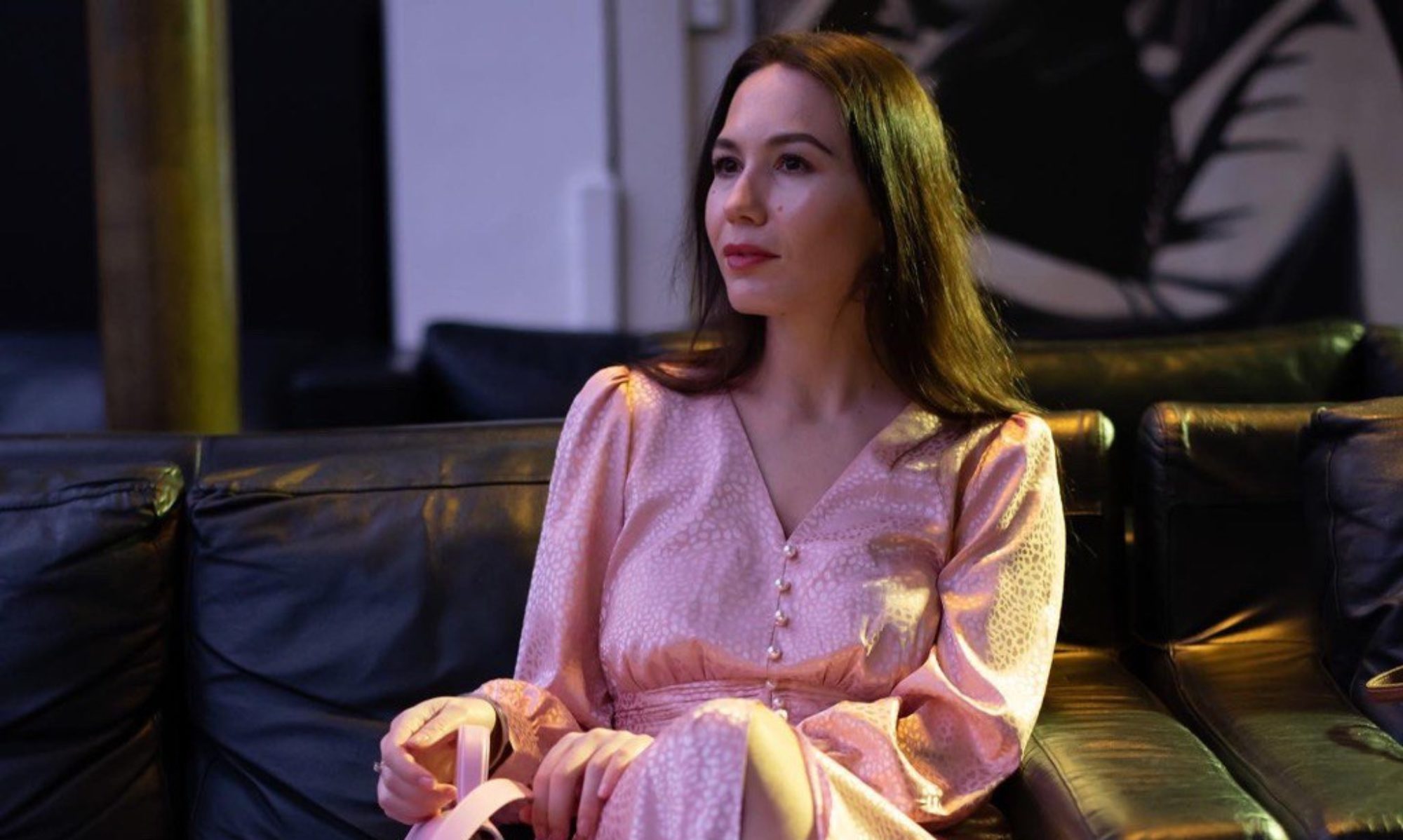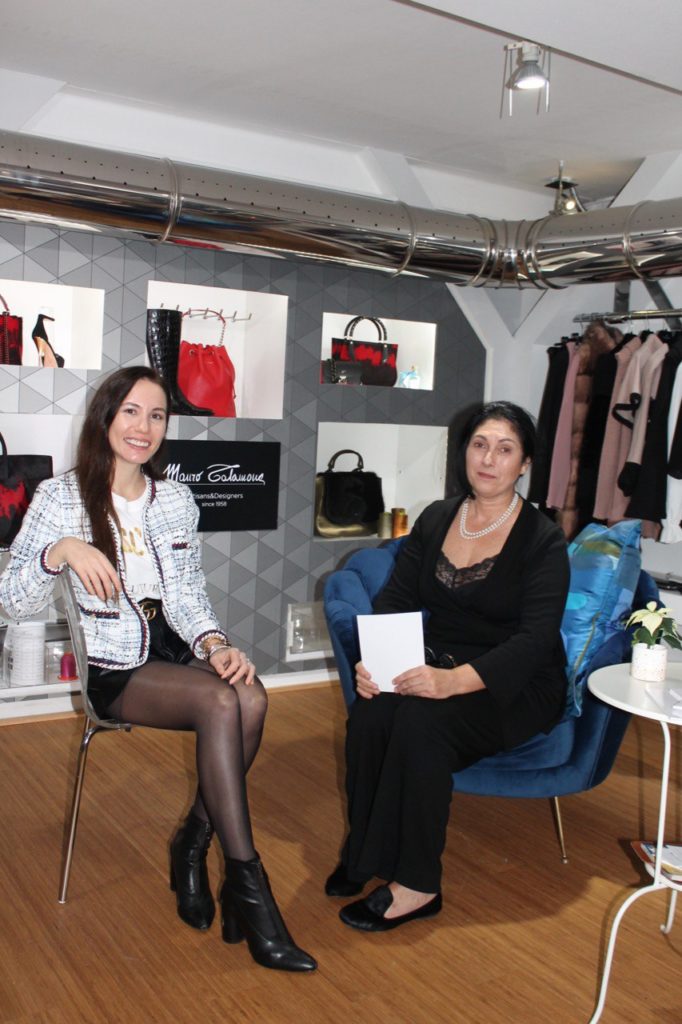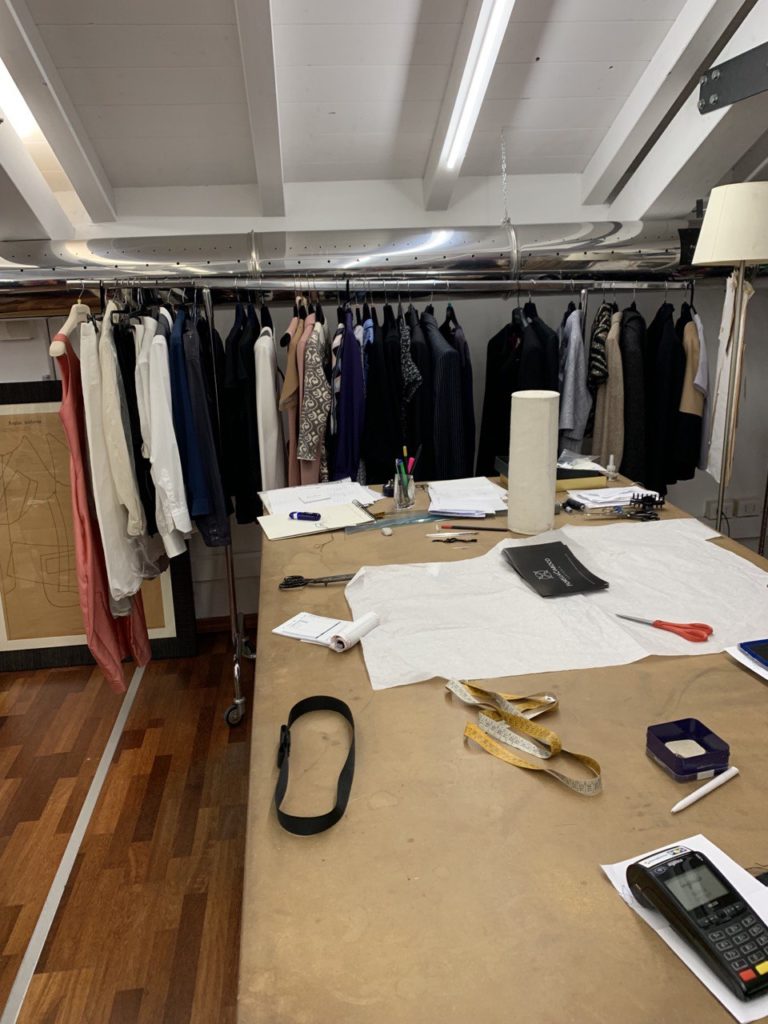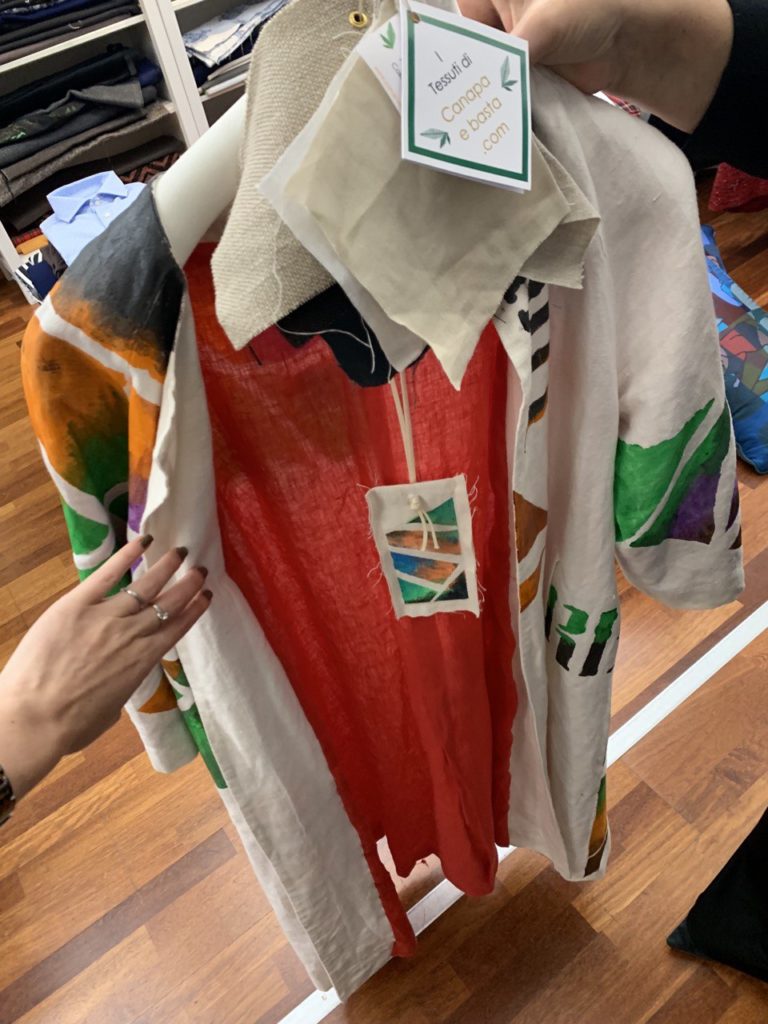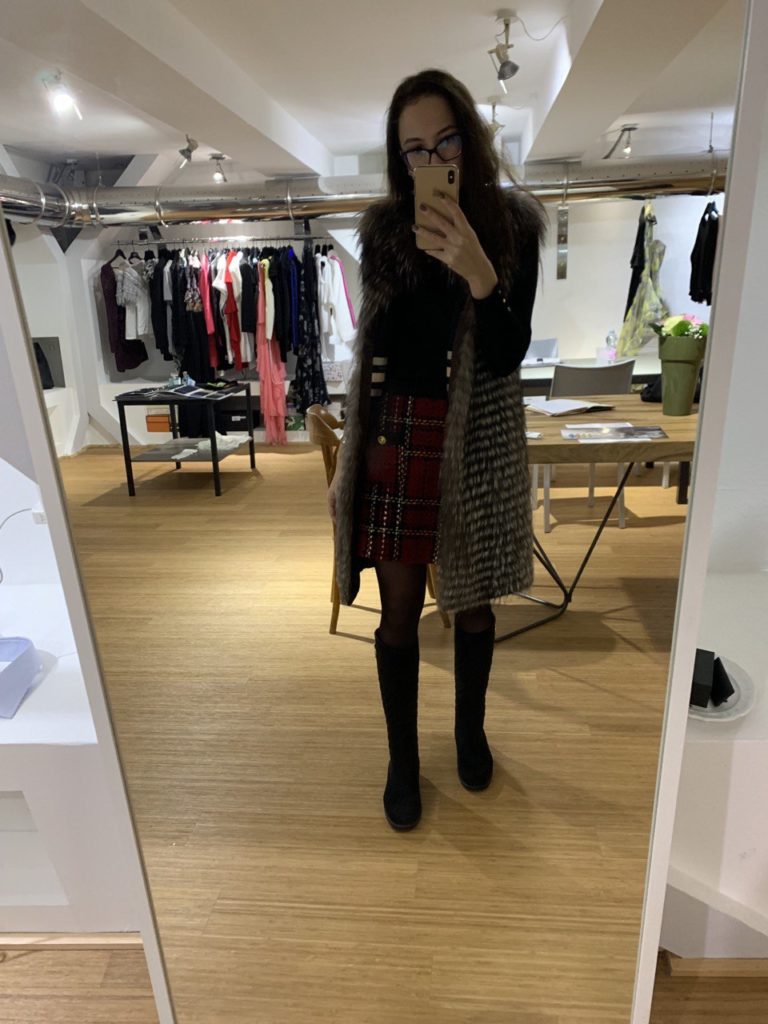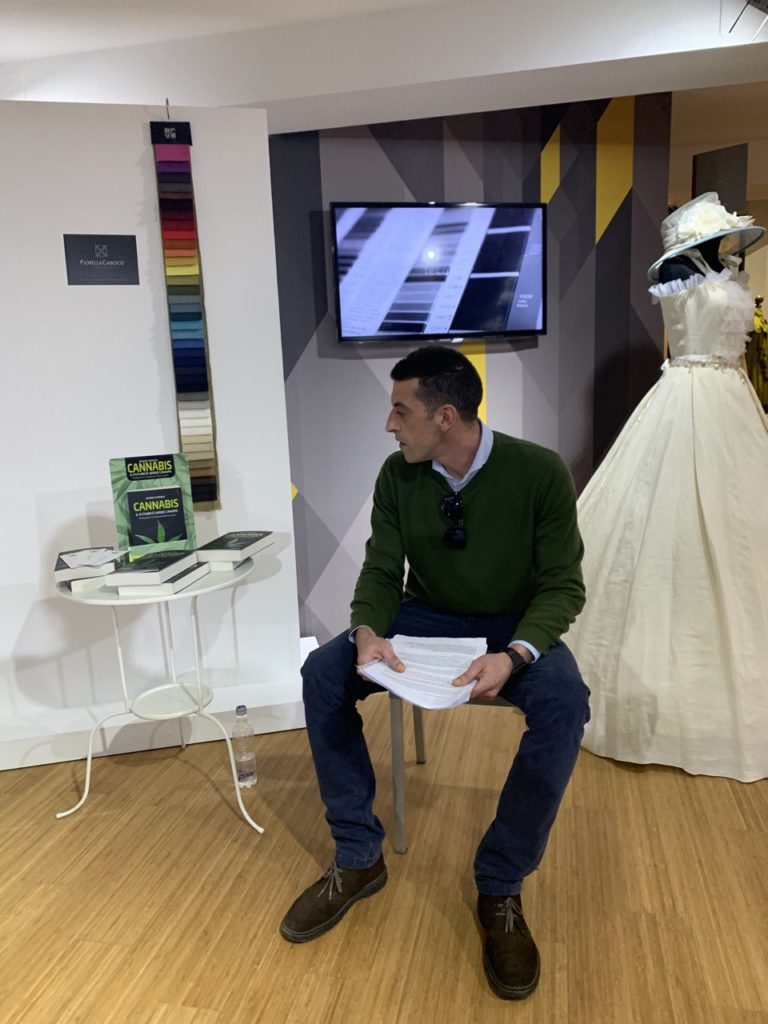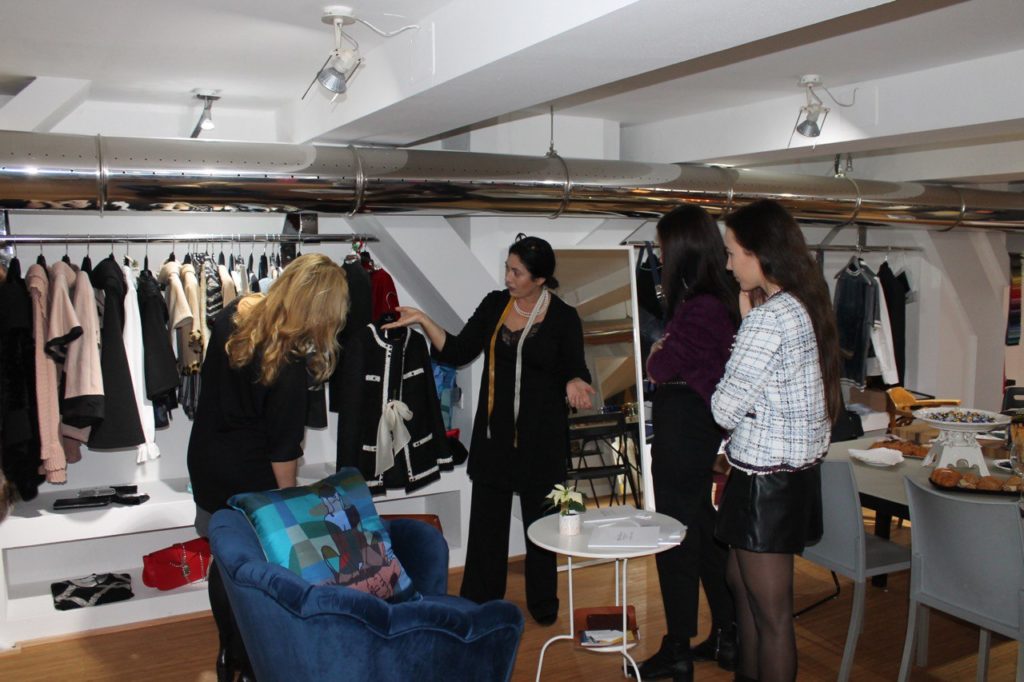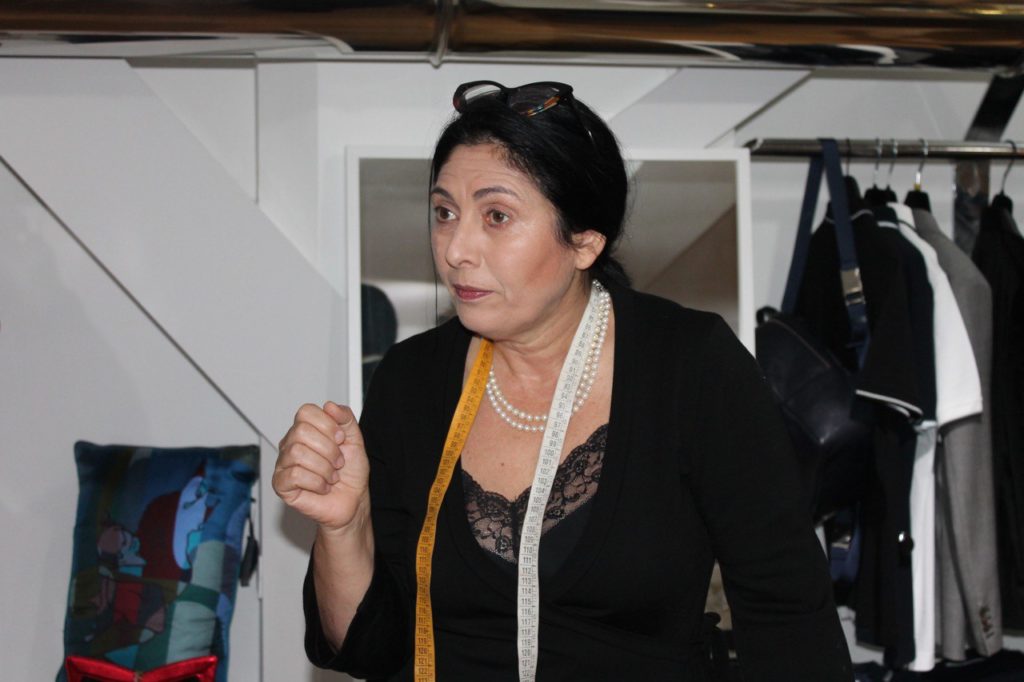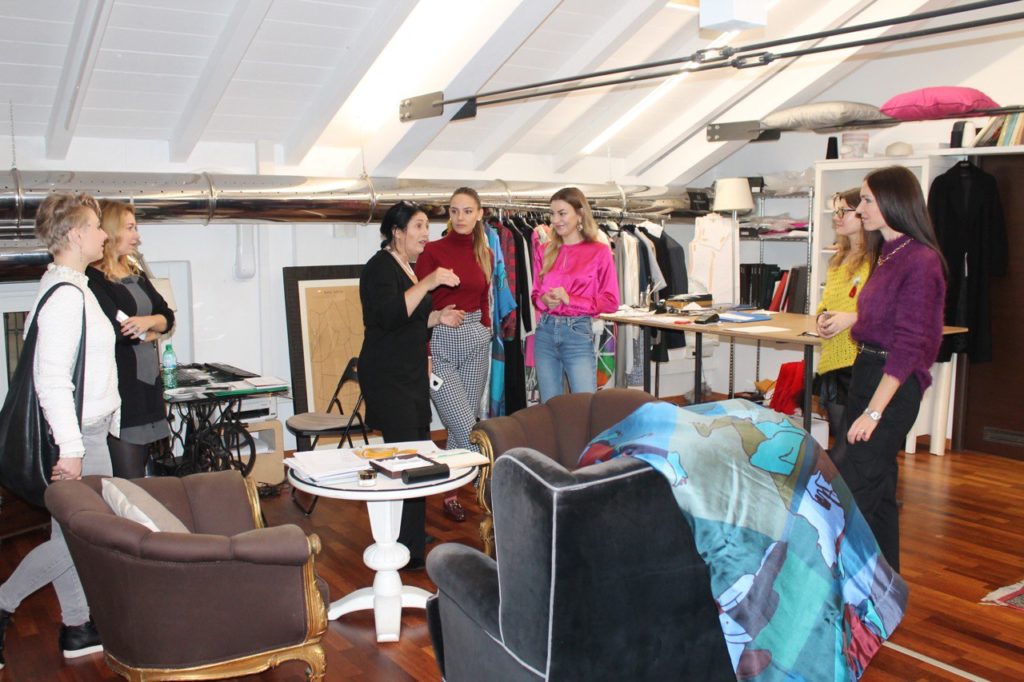“Come to see the real #madeinItaly!” – I couldn’t miss this brave statement on the brand Instagram of Fiorella Ciaboco atelier in Milan (@sartoriafiorella). Thus, the challenge was accepted and that’s how I discovered, undoubtedly, real Italian and truly artisan tailor.
Fiorella Ciaboco is a designer, master tailor, teacher, and entrepreneur. She opened her first couture atelier when she was 21 years old after graduating in Pattern Making & Tailoring at Perugia. Now she is running the couture atelier in Jesi, in the region of Marche, with a small team of master tailors and the showroom in Milan.
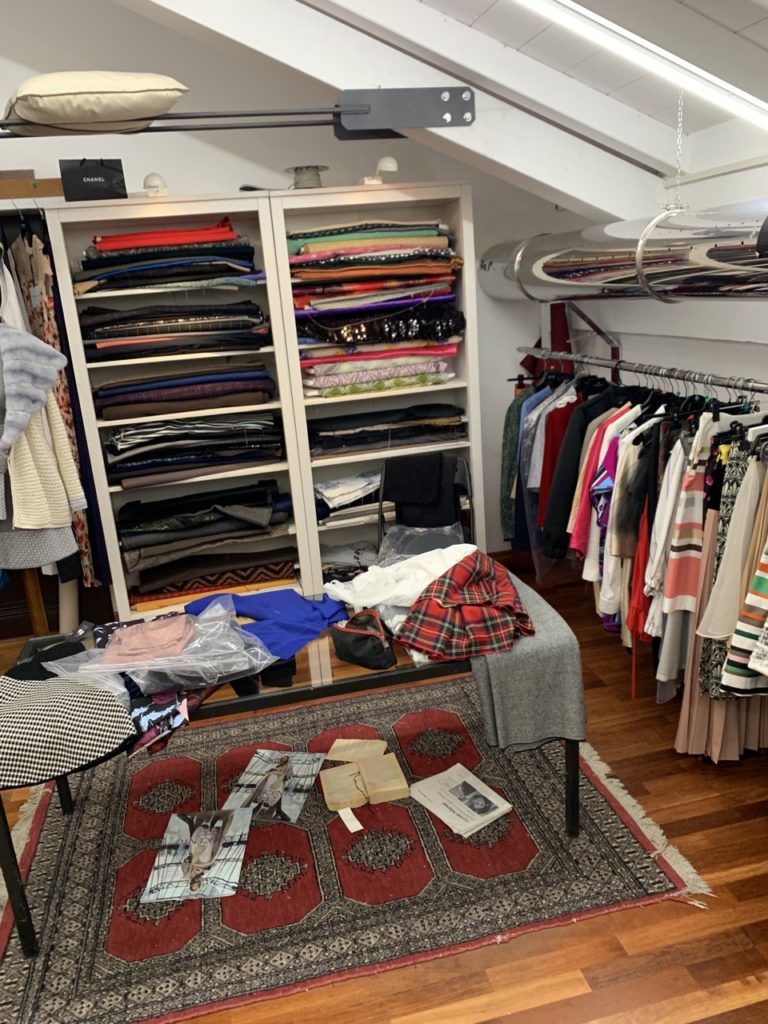
While stepping on the threshold of the atelier entrance door I announced my purpose of visit – to see the real Italian made clothes.
“You can see if the clothes really made in Italy due to the technics: external and internal seams, the quality of the seamy side of the item, the furniture…” – said Fiorella while showing the clothes in detail.
Having a long professional experience in tailoring, for her, it is a 5-minute deal to understand whether the piece is made in Italy or not. Among the other insider information, I discovered that not all the fabrics can be handcrafted, moreover, not all of them should be. Technical know-how nowadays comes to machinery usage, which makes the quality of tailored made piece higher.
“With some materials is hard or not possible at all to handcraft, the machinery is often needed for the higher quality.” – Fiorella Ciaboco.
Two-floor atelier building is modestly hidden in the small yard 50 meters away from the corner of the famous Corso Como street. The first floor is taken by the showroom with the clothes mostly made by the atelier but also few by other designers. The second floor is the cutting room and the fabric sample collection. The magic atmosphere of artisan fills you in there.
Besides the artisanal work, Fiorella is giving lectures at the University of Urbino and Poliarte of Ancona teaching young designers to create and master the clothes.
“There is a common problem worldwide – the young designers often are better in drawing than in tailoring technics, but it is very important to learn it.”
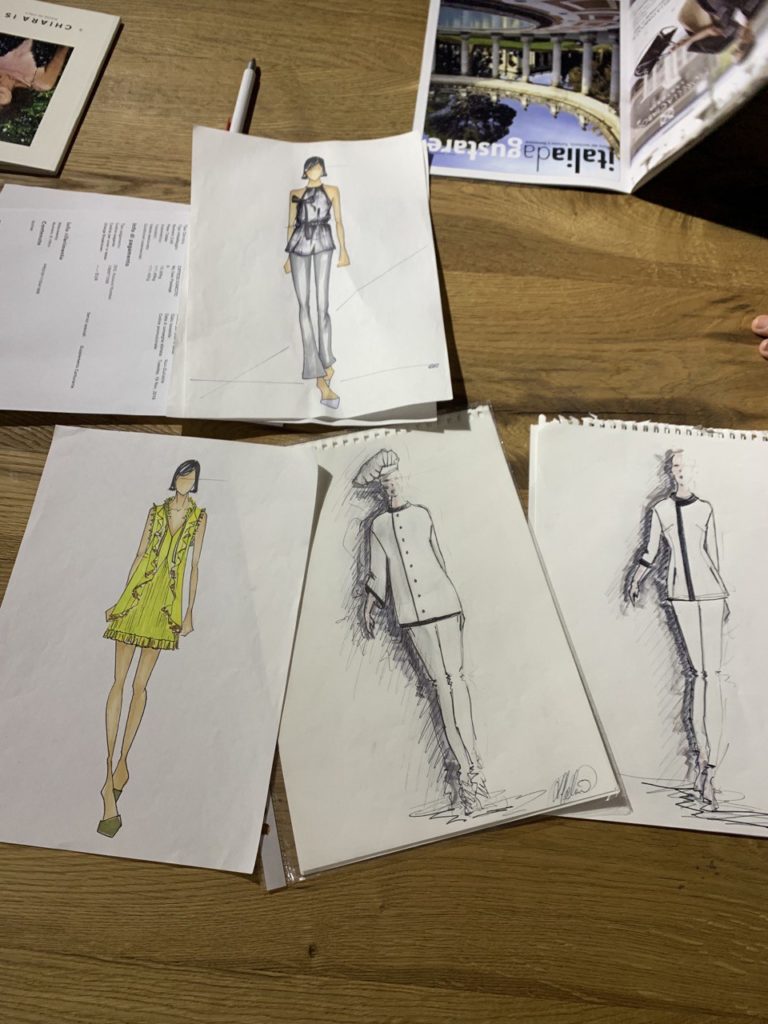
Her students come to Milan from all over the world. It may seem paradoxical, but students of many famous universities come to Fiorella to learn to tailor.
“Often, they absolutely lack both: an understanding of the technical side of tailoring and the skills themselves for creating clothes.”
During her courses each student (as much as a client) is guided by technical know-how and artisan expertise while mastering.
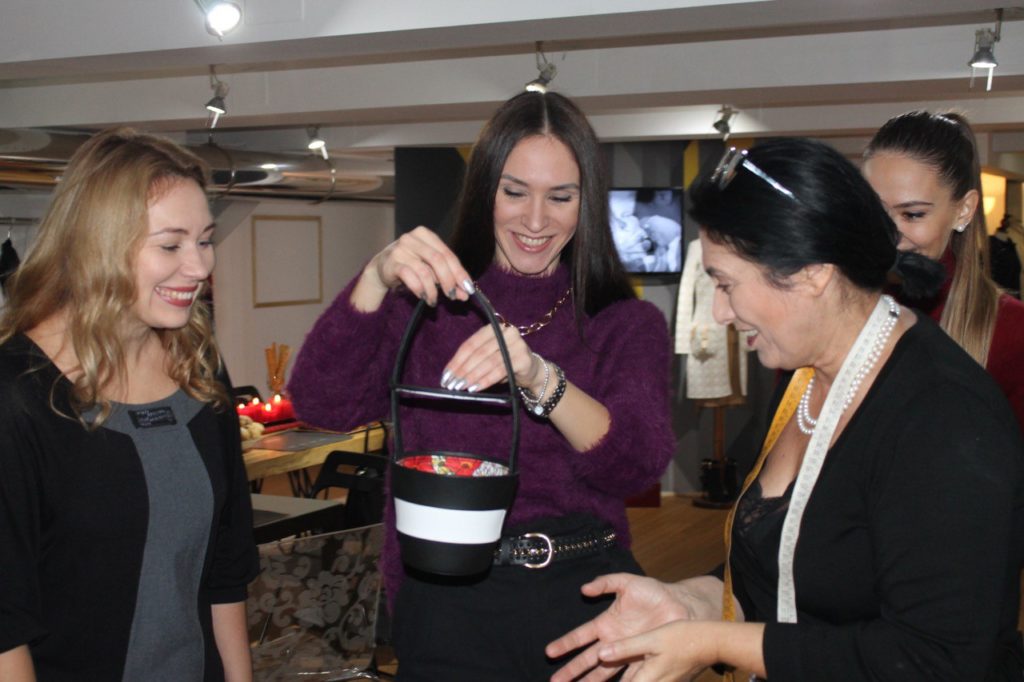
By the time I discovered every single meter of the atelier I noticed that there were presented the clothes made of natural fur: new and vintage models. Obviously, I could not leave this fact without the comment. Turned out, that Fiorella has her strong opinion on conscious consumerism:
“Eco-fashion does not mean to get rid of the old clothes, especially when they are quite expensive. For instance, to fulfill it again with a faux fur coat you need to go and to purchase it again. And the production of it has not less negative effect on nature. The idea is to shop consciously, to use longer, to buy less. And here I can change old-styled piece for looking modern and to serve my client longer time.”
Moreover, Fiorella actively supports eco-fashion, she often participates in workshops, EXPOs and organizes the events. Her eco-sustainable line is also presented in the showroom. In collaboration with the local painters, she created a collection made of cannabis, truly eco-friendly material. So, recently I had a chance to be part of one of the events dedicated to the collection release. Together with Mario Catania, Italian journalist and author of the book “Cannabis. Il futuro è verde canapa”, we discussed a hot issue of the global economy and fashion industry – the usage of cannabis in textile production within the eco-fashion trend. Many questions came up during the talk but many more were answered by the real industry insiders: experts, goods producers, and designers. For instance, did you know that to produce the cotton fabrics the amount of water needed is huge? Compared to cannabis-based ones, where, for the same production no water is used at all. This and many other advantages make cannabis one of the raw materials of the future. Fiorella fully supports these ideas by applying them to the fashion industry. Besides the mentioned event, in the middle of December in collaboration with other designers, Atelier Fiorella Ciaboco took part in a Fashion tour, starting from Marbella, Spain.
As a conclusion I would like to add that I spent few days during a couple of weeks with Fiorella Ciaboco: I asked many questions, sometimes pretty provocative, I observed the working process, I talked to her colleagues, clients, and students. For me, she is a designer who has her voice in the local industry, who makes steps to change it into a better one, who supports young talents and has open minds for the new changes and challenges. Thus, turned out that I did not simply visit the atelier in Milan to challenge their #madeinItaly statement, but I took part in something important, something that links many like-minded people around Fiorella Ciaboco.
